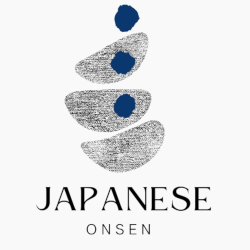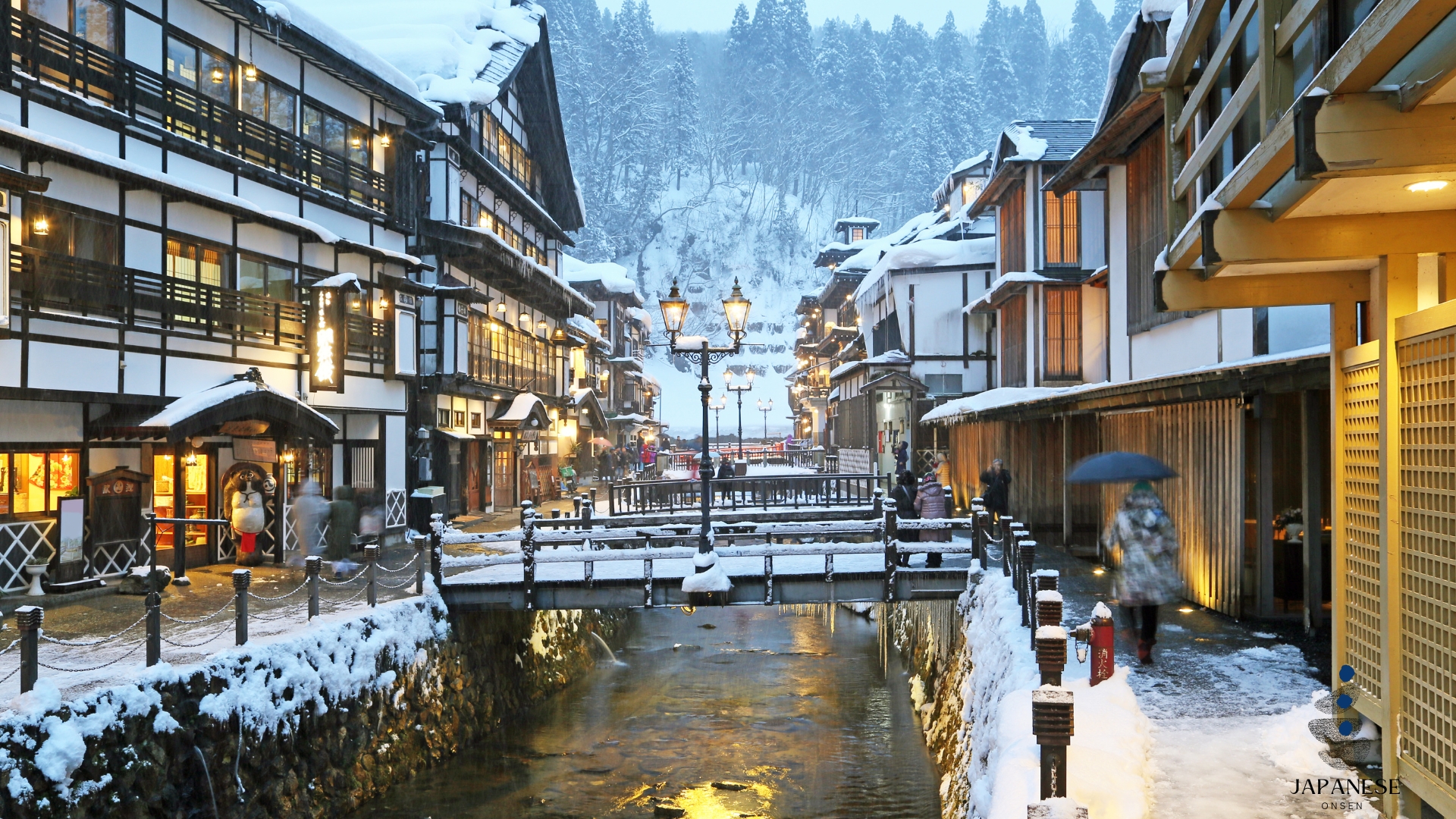Onsen and ryokan are not the same, but they can also overlap in their offerings. Confusing? A little bit, but once you read this post, you will understand the difference between onsen and ryokan once and for all.
As you might have seen from this site, I’m obsessed with Japanese onsen and ryokans and for the past few years I’ve been visiting dozens of them. I have been to ryokans, but also onsen ryokans. And yes, there is a difference.
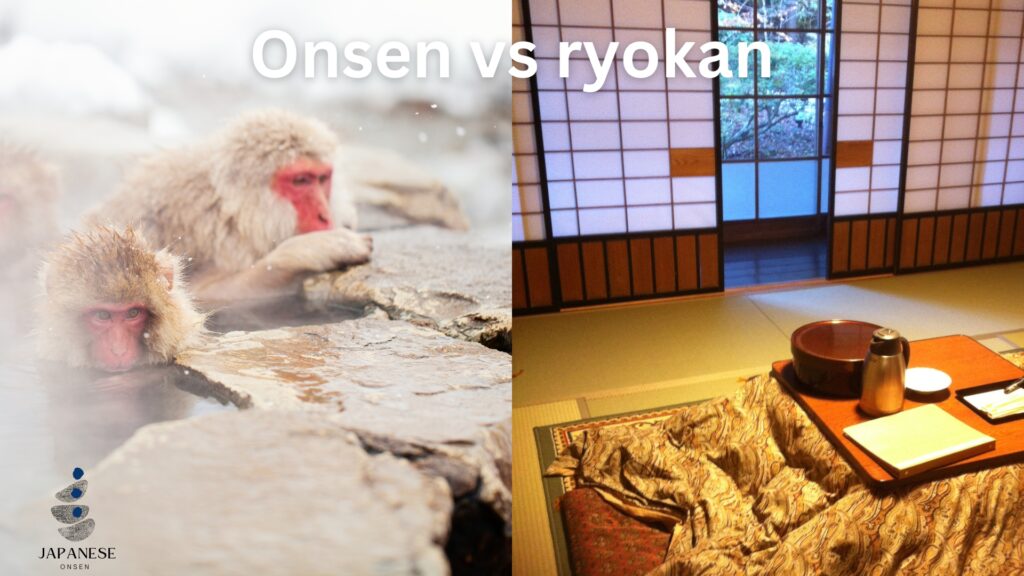
Onsen vs. Ryokan: A Brief Overview
In Japanese, the word onsen (温泉) refers to a hot spring. The term is also used to describe bathing facilities and inns around the hot springs themselves. People visit onsen to soak and relax in the hot spring waters known for their health benefits.
A ryokan, on the other hand, is a traditional Japanese inn that offers visitors a complete cultural experience. Staying at a ryokan means sleeping on futons, wearing yukata and enjoying a kaiseki dinner.
While some ryokans have onsen baths (often called onsen ryokans), not all do. If you’re looking for accommodation that is an immersive cultural experience in Japan, stay in a ryokan. If you are searching for a place with natural hot springs, pick an onsen ryokan.
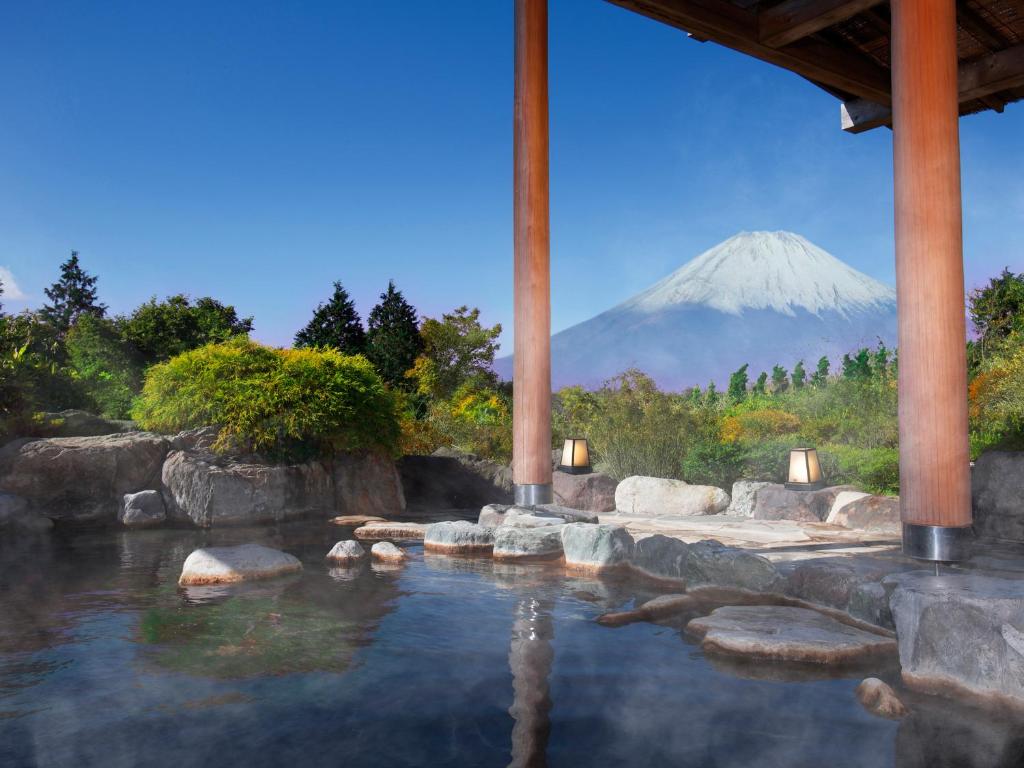
What Exactly is an Onsen?
An onsen is a natural hot spring in Japan, formed by geothermal activity. The water in an onsen is rich in minerals like sulfur, iron, or sodium.
Onsens are popular for relaxation and soaking. Many believe that they have beauty and therapeutic properties. But what’s most special about them is that you can mostly find them in scenic locations, sometimes deep in the mountains.
Some onsen are outdoor (called rotenburo, or open-air baths) or indoor baths. As I mentioned above, onsen are part of a larger facility, such as a ryokan or public bathhouse.
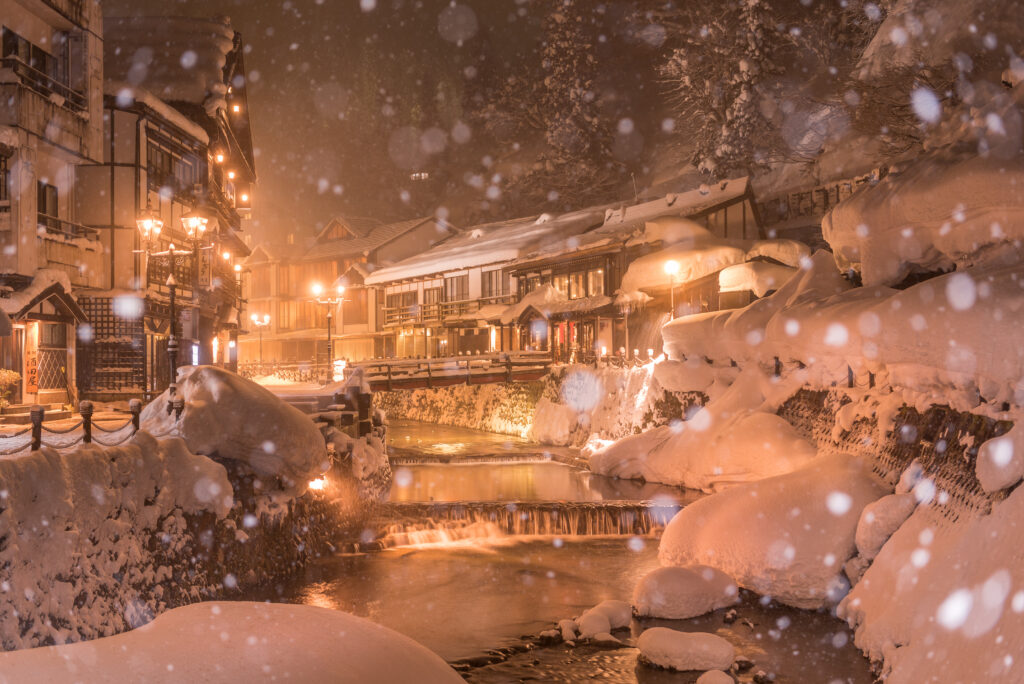
What Exactly is a Ryokan?
A ryokan is traditional Japanese accommodation that lets you experience the culture of Japan. Staying at a ryokan includes sleeping on tatami mats with futon bedding, wearing a yukata (casual cotton kimono), and enjoying kaiseki, a multi-course Japanese dinner. Ryokans have very specialized service. When visiting Japan, experiencing a ryokan is a must.
Some ryokans, but not all, have onsen onsite. That means these particular ryokans were built on onsen areas, near the hot water spring source. High-end ryokans even come with private open-air baths so you can soak in your own private onsen for the duration of your stay. These types of ryokans are especially popular with foreign tourists and those who have tattoos.
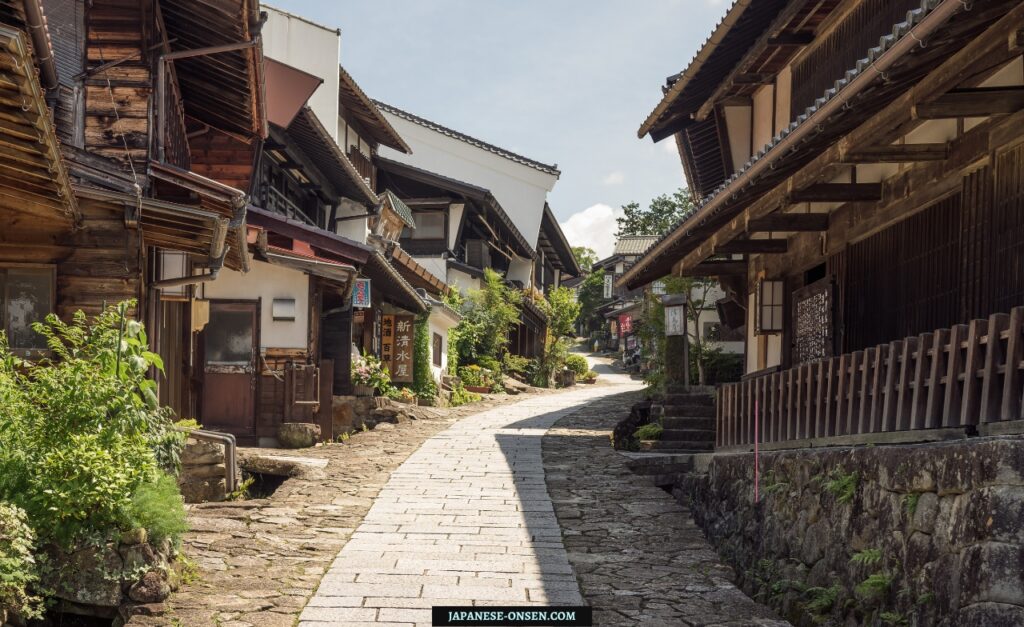
Are All Onsens Also Ryokans?
Not all onsens are ryokans. An onsen refers specifically to the hot spring bath itself. You can find onsen in dedicated bathhouses, public baths or even standalone outdoor baths (in some areas of Hokkaido, for example). Onsens can also be part of a ryokan, hotel and even a day spa.
While many ryokans feature onsen baths as part of the experience, some do not. So, you can enjoy an onsen without staying at a ryokan, and vice versa.
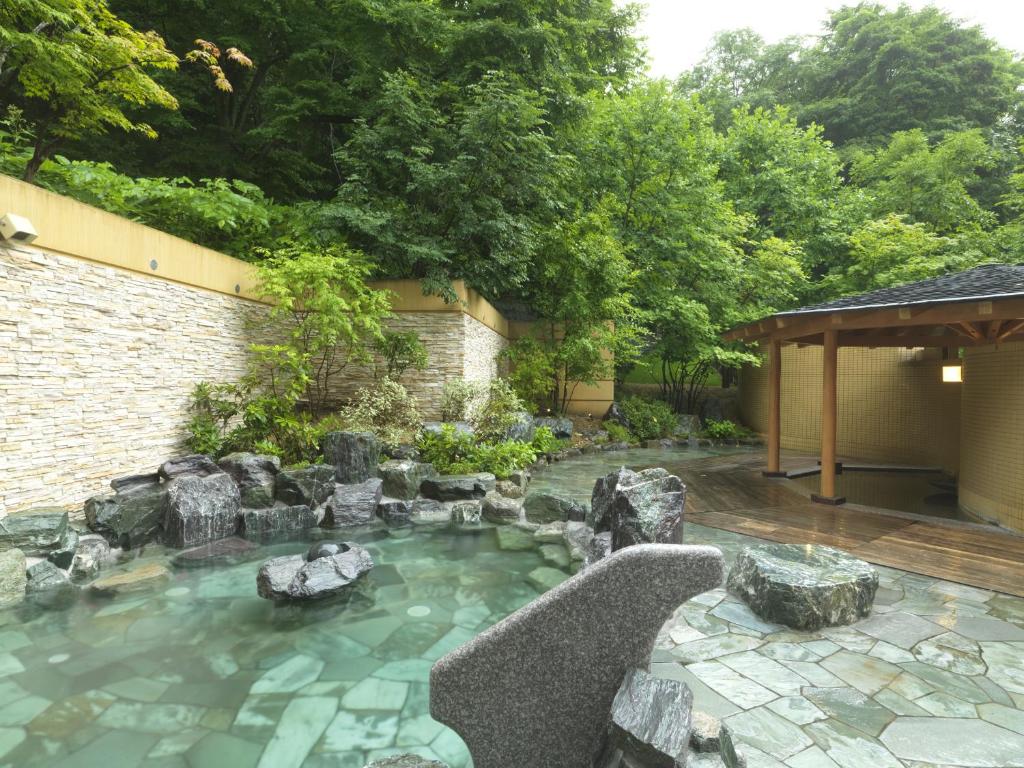
Do All Ryokans Feature Onsens?
Not all ryokans feature an onsen. Many ryokans are located in onsen areas and have onsen baths. These onsen ryokans are most sought after, especially for tourists in Japan who have limited time and want to experience 2-in-1: the ryokan cultural experience and the onsen as well.
What Distinguishes an Onsen from a Sento?
The main difference between an onsen and a sento is the water source. An onsen uses natural hot spring water, rich in minerals, that comes from geothermally heated underground sources. A sento is a public bathhouse that uses regular tap water.
Sentos are popular in urban areas, and they provide a communal space for bathing. Sentos became popular in Japan because many older homes, especially in urban areas, were built without private bathrooms. That means that many people relied on sentos for their daily baths. While nowadays most houses in Japan do have bathrooms, sentos remain popular for their communal aspect and people coming together.
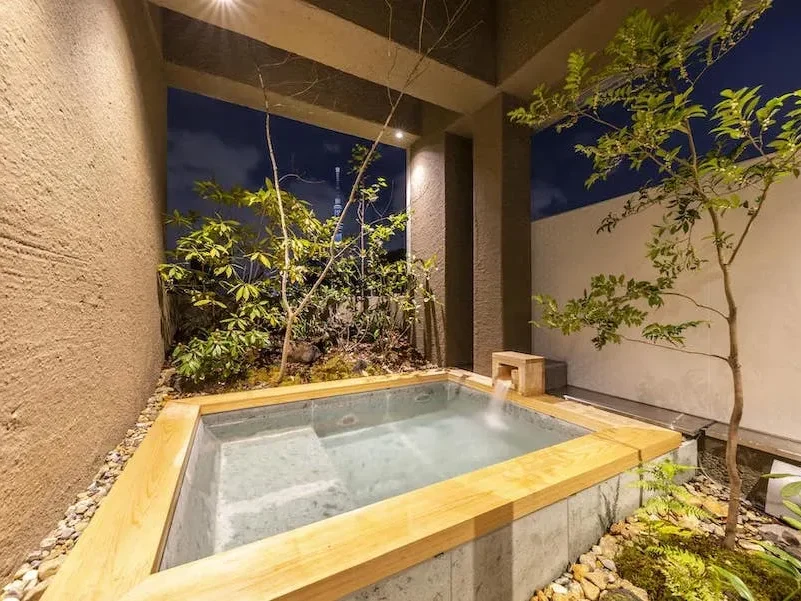
Some ryokans have a sento instead of an onsen
It’s important to note that some ryokans have a sento instead of an onsen. These ryokans have communal hot bathing facilities that use regular heated tap water instead of natural hot spring water. This is more common in areas where people still want the onsen experience but there is no access to natural hot springs.
Such ryokans are most popular in areas like Tokyo, for example. Even though you won’t get to soak in a natural hot spring area, you will still get the traditional Japanese bathing experience as well as the full ryokan service.
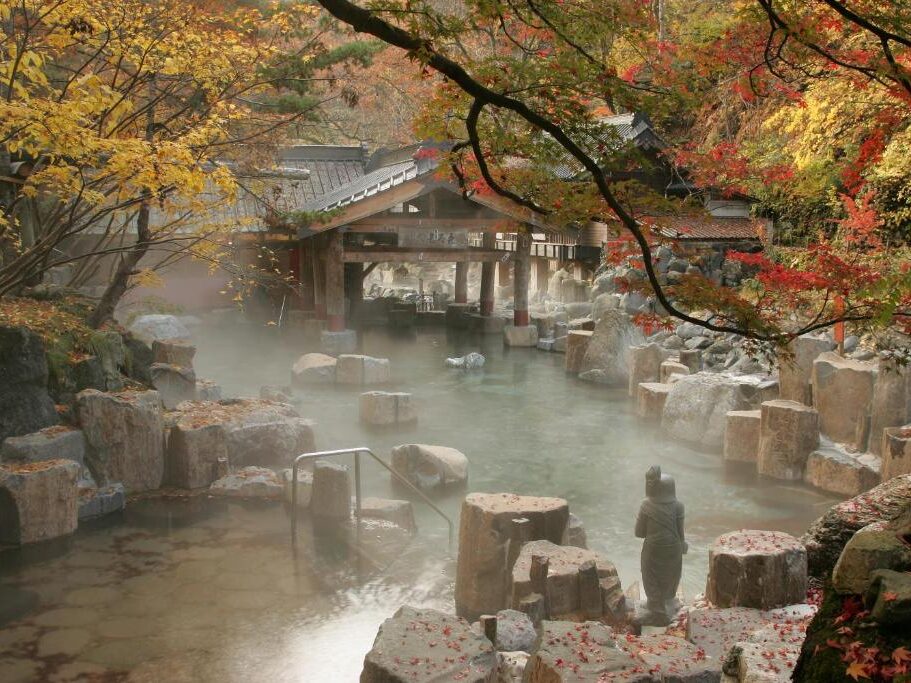
Is Clothing Permitted in an Onsen?
Many tourists that come to Japan are shocked to realize that clothing is not permitted in an onsen. It is customary to bathe completely nude in an onsen, whether it’s a public or private bath.
Yup, you’ve read this right, it means you cannot wear swimsuits or any other clothing. This is why most onsen are gender separated, to ensure everyone is comfortable and feels safe.
There are some exceptions to this rule, however. While rare, some mixed gender onsen such as the Takaragawa Onsen Osenkaku ensure that all people must wear a special swimwear provided by the ryokan.
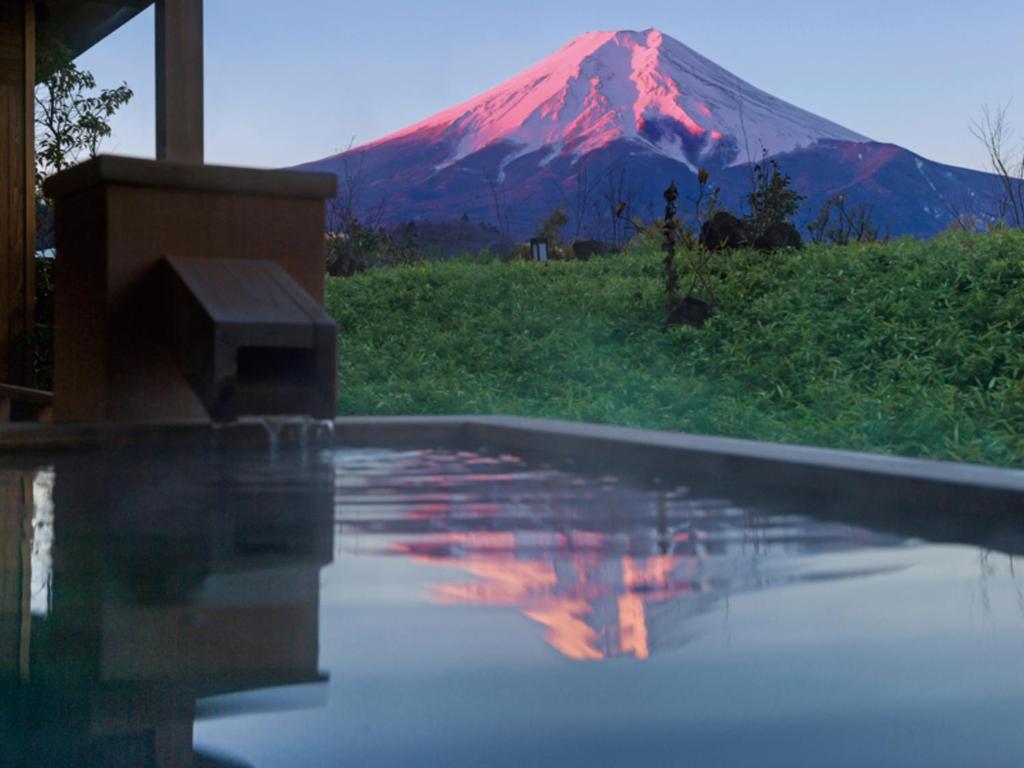
Are tattoos permitted in an onsen?
Tattoos continue to be considered taboo in Japan, especially in an onsen. Tattoos are associated with organized crime, like group members of the yakuza. Many traditional onsens and ryokans have a strict no-tattoo policy. Some onsen allow for tattoos to be covered with a waterproof patch, or you might be denied entry.
Luckily, attitudes towards tattoos are gradually changing, especially in more tourist friendly places. There are now a great deal of onsen ryokans which allow tattoos. Besides, there are several onsen ryokans with private baths which ensure that you feel safe and your tattoos pose no issue.
I have tattoos and I know how difficult it can be to find a tattoo friendly onsen so it’s always a good idea to check the onsen’s policy in advance, or ask at the reception if you’re unsure.
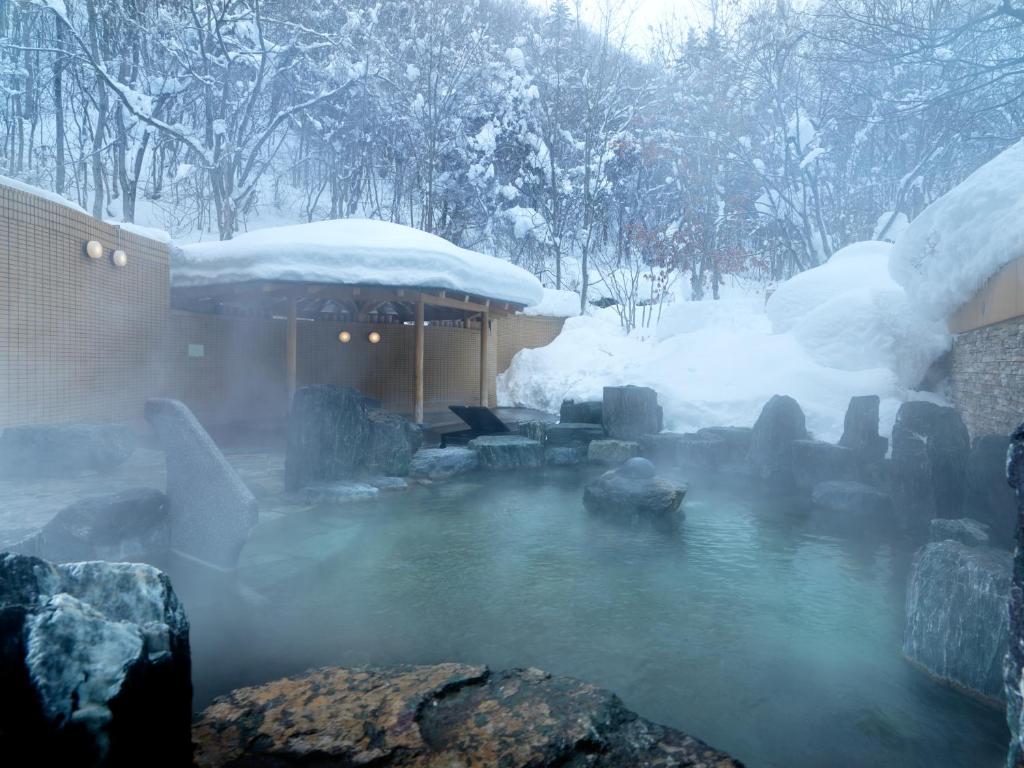
Is It Worth Staying in a Ryokan?
Staying in a ryokan while visiting Japan is definitely worth it. It was the highlight of my first trip, to be honest. First of all, ryokans are usually in stunning natural surroundings with beautiful views or incredible landscaped gardens. The moment you arrive, you are being so well taken care of and the Japanese hospitality is, in my opinion, the best in the world.
I do think that staying in a ryokan with onsen is a much cooler experience, especially if you’re visiting Japan for a short while and want to make the most out of your time there. You get the cultural immersion of a ryokan while also enjoying the relaxing tradition of soaking in an onsen—two experiences in one.
Concluding Thoughts
Ryokans and onsen are two entirely different things. While some ryokans do have an onsen, not all onsen are attached to a ryokan. Onsen are practically hot springs, while ryokans are a type of special Japanese inn with traditional floors and bedding.
You can visit Japan and enjoy a ryokan without the need to visit an onsen. You can also just visit an onsen without having to stay in a ryokan, but for the best experience, staying in a ryokan with a natural onsen is one of the most beautiful activities you can try.
More ryokans and onsen guides
- Wonderful ryokan onsen in Osaka you’ll love
- Incredible ryokan onsen in Arima hot spring
- Incredible Hakone ryokans with private onsen
- Onsen Meaning – Japanese Hot Springs
- Stunning Kyoto ryokans with private onsen
- Onsen vs ryokan: What is the difference?
- What is a Ryokan
- Top Ryokan with Private Onsen in Tokyo
- Top 10 Ryokans in Japan
- What is an onsen in Japan
- Where to soak?
